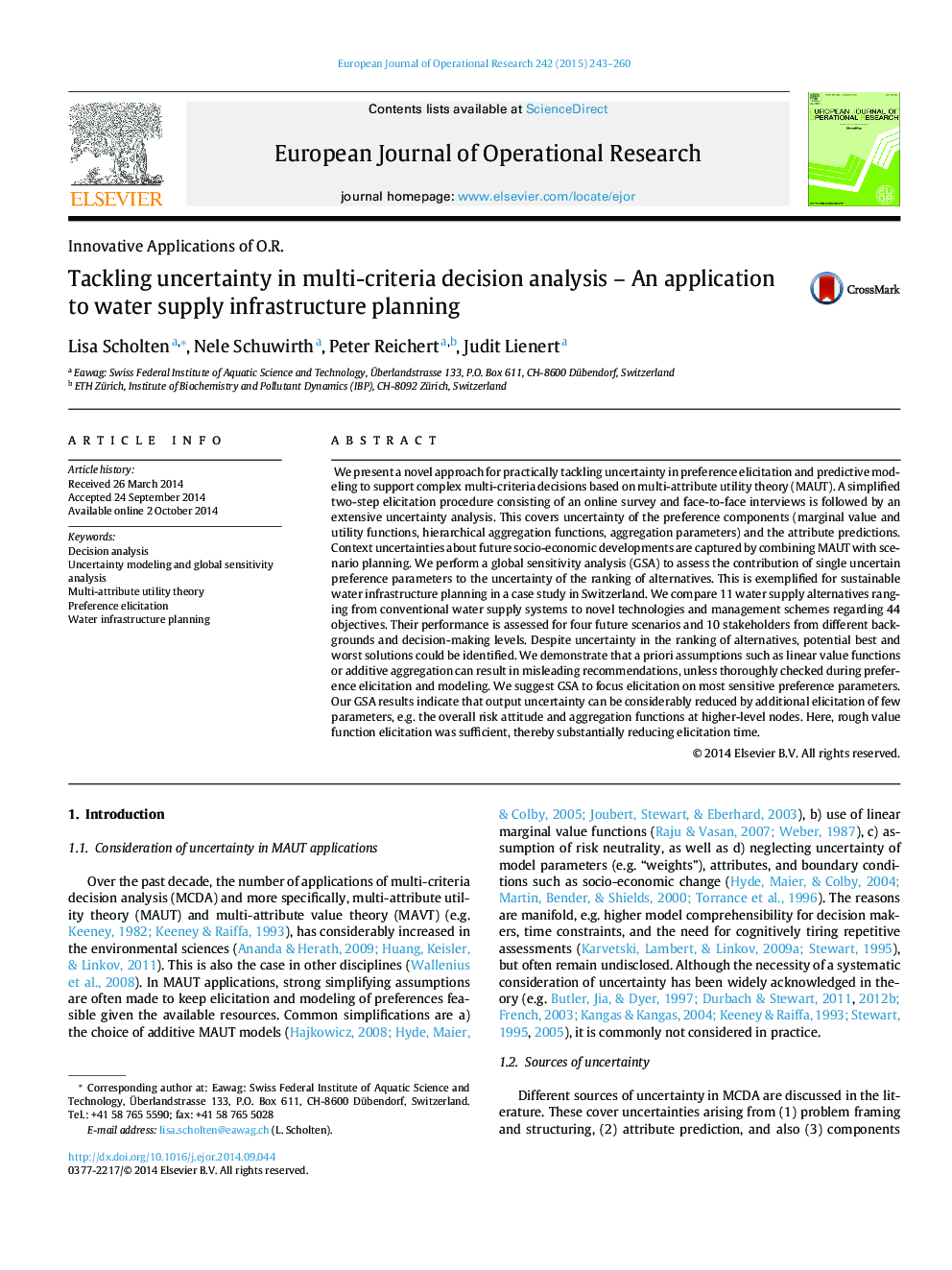| کد مقاله | کد نشریه | سال انتشار | مقاله انگلیسی | نسخه تمام متن |
|---|---|---|---|---|
| 476596 | 1446011 | 2015 | 18 صفحه PDF | دانلود رایگان |
• This approach tackles uncertainties in MAUT in a structured and consistent manner.
• Five major sources of uncertainty in MCDA/MAUT are reviewed.
• Ways to simplify elicitation and impacts on the results are evaluated.
• Robustness is assessed by scenario, uncertainty and global sensitivity analyses.
• This is exemplified for water infrastructure planning in a complex case study.
We present a novel approach for practically tackling uncertainty in preference elicitation and predictive modeling to support complex multi-criteria decisions based on multi-attribute utility theory (MAUT). A simplified two-step elicitation procedure consisting of an online survey and face-to-face interviews is followed by an extensive uncertainty analysis. This covers uncertainty of the preference components (marginal value and utility functions, hierarchical aggregation functions, aggregation parameters) and the attribute predictions. Context uncertainties about future socio-economic developments are captured by combining MAUT with scenario planning. We perform a global sensitivity analysis (GSA) to assess the contribution of single uncertain preference parameters to the uncertainty of the ranking of alternatives. This is exemplified for sustainable water infrastructure planning in a case study in Switzerland. We compare 11 water supply alternatives ranging from conventional water supply systems to novel technologies and management schemes regarding 44 objectives. Their performance is assessed for four future scenarios and 10 stakeholders from different backgrounds and decision-making levels. Despite uncertainty in the ranking of alternatives, potential best and worst solutions could be identified. We demonstrate that a priori assumptions such as linear value functions or additive aggregation can result in misleading recommendations, unless thoroughly checked during preference elicitation and modeling. We suggest GSA to focus elicitation on most sensitive preference parameters. Our GSA results indicate that output uncertainty can be considerably reduced by additional elicitation of few parameters, e.g. the overall risk attitude and aggregation functions at higher-level nodes. Here, rough value function elicitation was sufficient, thereby substantially reducing elicitation time.
Journal: European Journal of Operational Research - Volume 242, Issue 1, 1 April 2015, Pages 243–260
